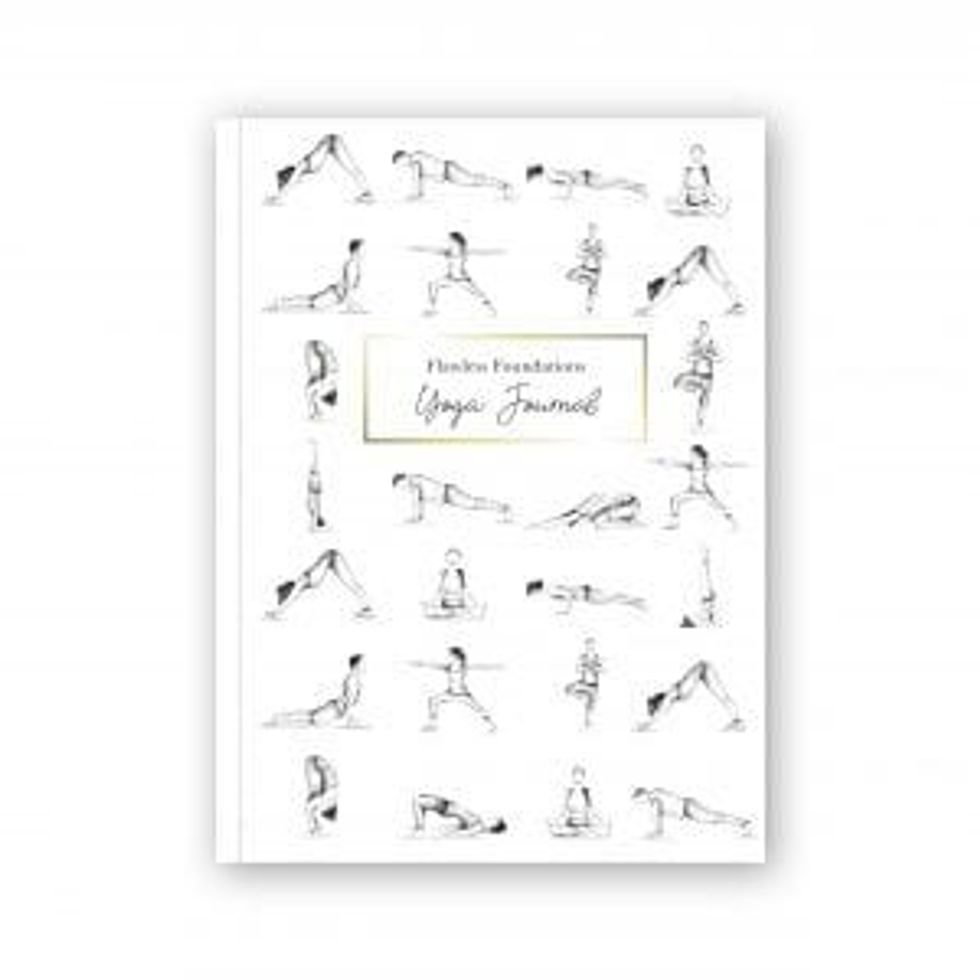YOGA MASTER RAKHEE VITHLANI DISCUSSES HER NEW BOOK
by ASJAD NAZIR
YOGA has helped mental and physical health greatly during the Covid-19 lockdown. Many globally have taken up the ancient practice rooted in Indian tradition, including attending online classes from professionals like Rakhee Vithlani.
The London-based yoga master has now gone a step beyond online classes, podcasts and personal consultations by creating the interactive book Flawless Foundations Yoga Journal. She is hoping the recently released book with easy-to-follow instructions, illustrations, philosophies and a personal journal section sets everyone on a healthier path ahead.
Eastern Eye caught up with Rakhee Vithlani to discuss her book, close connection to yoga and good health.
What first connected you to yoga?
Many years ago, before I became a teacher, I was working in the city and noticed I was feeling really tired more often. I always had an interest in trying yoga, but I didn’t really connect to it when I had gone to classes before. I eventually connected to it because I found a teacher I really liked and loved that there was always something new to learn, on mental and physical levels.
How did you adapt during lockdown?
Like everyone else, I had my challenges. But I took on a simple principle of accepting the changes. A situation like this is made a lot harder when we question everything. There are some things we can control, but a lot we can’t. So, I accepted the things I couldn’t change every day. In terms of my work, I had to adapt quickly and took all my classes online. It was strange at first, but it’s turned out brilliantly thanks to my amazing students who show up each week.
What led you towards writing your new book Flawless Foundations Yoga Journal?
Initially, I really wanted to produce something that would help encourage people who were unsure about yoga or were not sure where to start by producing a simple guide to postures. It merged into something much more, as the teachings and philosophies are equally important. I also wanted to offer a book that was useful, and one people would use, so it includes a journal section too.
Tell us about the book?
Flawless Foundations Yoga Journal is in three parts really. It’s a series of illustrated sketches of foundational postures, which are accompanied by tips, benefits and how-to-practise advice. There are also a set of philosophies which help people to approach yoga (and life) in a way that is more positive. Thirdly, there is a journal section, which includes ‘trigger thoughts’ to help people write and reflect from different perspectives. Ultimately, it is a book I hope people will love to read, absorb and learn from.
Who are you hoping connects with the book?
Anyone who has an interest in yoga, or who feels yoga isn’t for them, but would like to know more. That’s everyone really.
What about those new to yoga?
It’s a great guide. I also run online beginner’s courses, for which this book is a perfect companion. Yoga isn’t just about the physical. It is more about our approach and our mindset too.
What was the biggest challenge of putting the book together?
In the middle of a Covid year, getting things done on time with the right suppliers was tough. I didn’t want to just put the book on Amazon. I wanted to produce it myself, to a special quality. I wanted to make sure that when it went out, it went to people with a personal touch. So, it was time-consuming and tricky to get it all done before the end of a ‘pandemic’ year, but it was well worthwhile.
Is there any one area of the book that would be your favourite?
Yes, page 53. You’ll have to get your hands on a copy to find out what it is.
What are the ways in which yoga can help people?
More than anything yoga has helped me to reclaim confidence in myself. To have a calm but unwavering belief I can overcome anything. This is the essence of my style of yoga, which I call superari. This means, in Latin, the will to overcome. A lot of people think they can’t do something before they’ve even tried. People often say to me ‘I’d like to try yoga, but I’m not flexible’. My response to that is ‘not flexible in the mind, or the body?’. If you are open enough to try, then all things are possible.
A lot of people have suffered mentally during lockdown. So, how does yoga benefit people’s mental wellbeing?
In two ways – connection to breath and physical movement. These two combined can help anyone with mental illness. When you lose yourself in movement, the mind settles. When you master the power of good breathing, your mind quietens. We are not taught these in schools, which is a shame; I think it is changing a bit now. But breath and movement, leading to meditation, are powerful in helping to address a multitude of mental illnesses.
You have a thriving online class, retreats and a book. What else can we expect from you?
I’ve never really been one to have a ‘business’ plan. My guide principle is always to try and be the best teacher I can be. Classes, podcasts, retreats and the book are ways in which I can teach more differently, to help people. Honestly, I just feel lucky to have remained in a position to continue being able to do what I want to do, especially in 2020 and now.
What inspires you as a yoga master?
I have a number of teachers I look up to, but I don’t believe in gurus. I think a good yoga instructor will lead to an understanding you are your greatest teacher. You have everything you need within you to survive and thrive. A teacher is merely there to remind you of what you already know and the strength you already have.
Why do you love yoga?
There is no end to what can be learned. And the benefits to health are also limitless. It’s like the whole universe wrote a book and called it yoga. And I want to spend my life exploring it, knowing fully well I’ll never know it all, no one will, but I’ll have a brilliant ride along the way!
Why should we pick up the book?
Even if you read one page, I believe it can help your mind or reactions in a really positive way. It’s a very useful book too. It has been illustrated by Lata Varsani, who is a wonderful artist. It will provoke positive thinking and you can actually use it as a journal too. Every word, every drawing has been created with great care and deep thought. What’s not to love?
Visit www.superarilife.com





